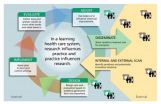Fainting: All in the family?
Embargoed for release until 4 pm ET, Monday, August 6, 2012
2012-08-07
(Press-News.org) MINNEAPOLIS – Fainting has a strong genetic predisposition, according to new research published in the August 7, 2012, print issue of Neurology®, the medical journal of the American Academy of Neurology. Fainting, also called vasovagal syncope, is a brief loss of consciousness when your body reacts to certain triggers, such as emotional distress or the sight of blood.
"The question of whether fainting is caused by genetic factors, environmental factors or a mixture of both has been the subject of debate," said study author Samuel F. Berkovic, MD, FRS, with the University of Melbourne in Victoria, Australia, and a member of the American Academy of Neurology.
For the study, 51 sets of twins of the same gender between the ages of nine and 69 were given a telephone questionnaire. At least one of the twins had a history of fainting. Researchers also gathered information about any family history of fainting. Of the 51 sets of twins, 57 percent reported having typical fainting triggers.
The research found that among twins where one fainted, those who were identical (from the same fertilized egg) were nearly twice as likely to both faint compared to fraternal twins (those from two different fertilized eggs). The risk of fainting not related to outside factors (such as dehydration) was also much higher in identical twins compared to fraternal twins. Identical twins were much more likely to both experience fainting associated with typical triggers than fraternal twins. The frequency of fainting in non-twin relatives was low, suggesting that the way fainting is inherited is usually not by a single gene.
"Our results suggest that while fainting appears to have a strong genetic component, there may be multiple genes and multiple environmental factors that influence the phenomenon," said Berkovic.
INFORMATION:
The study was supported by the National Health and Medical Research Council Australia.
To learn more about fainting, visit http://www.aan.com/patients.
The American Academy of Neurology, an association of more than 25,000 neurologists and neuroscience professionals, is dedicated to promoting the highest quality patient-centered neurologic care. A neurologist is a doctor with specialized training in diagnosing, treating and managing disorders of the brain and nervous system such as Alzheimer's disease, stroke, migraine, multiple sclerosis, brain injury, Parkinson's disease and epilepsy.
For more information about the American Academy of Neurology, visit http://www.aan.com or find us on Facebook, Twitter, Google+ and YouTube.
END
ELSE PRESS RELEASES FROM THIS DATE:
2012-08-07
In the United States, clinicians are struggling to provide better and more affordable health care to more people—while keeping up with new scientific developments. The idea of a "learning health system" is one proposed solution for rapidly applying the best available scientific evidence in real-time clinical practice. In the August 7 Annals of Internal Medicine, a Group Health Cooperative team describes the experience of turning this intriguing concept into action.
"In a learning health system, evidence and practice come together in a virtuous cycle, influencing each ...
2012-08-07
CHAMPAIGN, Ill. — Two new studies offer insight into sex chromosome evolution by focusing on papaya, a multimillion dollar crop plant with a sexual problem (as far as growers are concerned) and a complicated past. The findings are described in two papers in the Proceedings of the National Academy of Sciences.
The research reveals that the papaya sex chromosomes have undergone dramatic changes in their short evolutionary histories (they are about 7 million years old; by comparison, human sex chromosomes began their evolution more than 167 million years ago). One of the ...
2012-08-07
CHAMPAIGN, Ill. — People living 700 to 900 years ago in Cahokia, a massive settlement near the confluence of the Missouri and Mississippi Rivers, ritually used a caffeinated brew made from the leaves of a holly tree that grew hundreds of miles away, researchers report.
The discovery – made by analyzing plant residues in pottery beakers from Cahokia and its surroundings – is the earliest known use of this "black drink" in North America. It pushes back the date by at least 500 years, and adds to the evidence that a broad cultural and trade network thrived in the Midwest ...
2012-08-07
Hearing generic language to describe a category of people, such as "boys have short hair," can lead children to endorse a range of other stereotypes about the category, a study by researchers at New York University and Princeton University has found. Their research, which appears in the Proceedings of the National Academy of Sciences (PNAS), also points to more effective methods to reduce stereotyping and prejudice.
The study focused on "social essentialism," or the belief that certain social categories, such as race or gender, mark fundamentally distinct kinds of people. ...
2012-08-07
SAN FRANCISCO, CA—August 6, 2012— Scientists at the Gladstone Institutes have discovered that an FDA-approved anti-epileptic drug reverses memory loss and alleviates other Alzheimer's-related impairments in an animal model of the disease.
Scientists in the laboratory of Lennart Mucke, MD, who directs neurological research at Gladstone, conducted the research on mice genetically modified to simulate key aspects of Alzheimer's disease. In the study, they show how levetiracetam—a drug commonly prescribed for patients who suffer from epilepsy—suppresses abnormal brain activity ...
2012-08-07
VIDEO:
Harry Ostrer, M.D., discusses how his research into a new genetic analysis focusing on Jews from North Africa has provided an overall genetic map of the Jewish Diasporas. Dr....
Click here for more information.
August 6, 2012 — (Bronx, NY) — A new genetic analysis focusing on Jews from North Africa has provided an overall genetic map of the Jewish Diasporas. The findings support the historical record of Middle Eastern Jews settling in North Africa during Classical Antiquity, ...
2012-08-07
Specially designed comprehensive behavioral therapy is more effective than sessions offering patient support and education in helping adults with Tourette syndrome manage their tics – sudden, repetitive motions or vocalizations – according to a study in the August issue of Archives of General Psychiatry. The findings come from a team of investigators at Massachusetts General Hospital (MGH)/Harvard Medical School, Yale University, the University of Texas Health Science Center at San Antonio, and other institutions.
"The program we tested, which teaches patients new ways ...
2012-08-07
CHICAGO – Weight training was linked with a reduced risk of type 2 diabetes in a study of male health professionals, and those men who engaged in weight training and aerobic exercise for at least 150 minutes a week had the greatest reduction in risk, according to a report published Online First by Archives of Internal Medicine, a JAMA Network publication.
Regular physical activity is a cornerstone in the prevention and management of type 2 diabetes mellitus (T2DM), but the role of weight training in the primary prevention of the disease is largely unknown, according to ...
2012-08-07
CHICAGO – Higher levels of physical activity were related to lower risk of death in patients with diabetes, according to a report published Online First by Archives of Internal Medicine, a JAMA Network publication.
Increased physical activity (PA) has long been considered a key element in diabetes management. Patients with diabetes are at higher risk for cardiovascular disease (CVD) and premature death, so researchers note it is important to determine whether PA can produce similar beneficial effects in this high-risk population. While other studies have suggested that ...
2012-08-07
Boston, MA – Men who do weight training regularly—for example, for 30 minutes per day, five days per week—may be able to reduce their risk of type 2 diabetes by up to 34%, according to a new study by Harvard School of Public Health (HSPH) and University of Southern Denmark researchers. And if they combine weight training and aerobic exercise, such as brisk walking or running, they may be able to reduce their risk even further—up to 59%.
This is the first study to examine the role of weight training in the prevention of type 2 diabetes. The results suggest that, because ...
LAST 30 PRESS RELEASES:
[Press-News.org] Fainting: All in the family?
Embargoed for release until 4 pm ET, Monday, August 6, 2012


